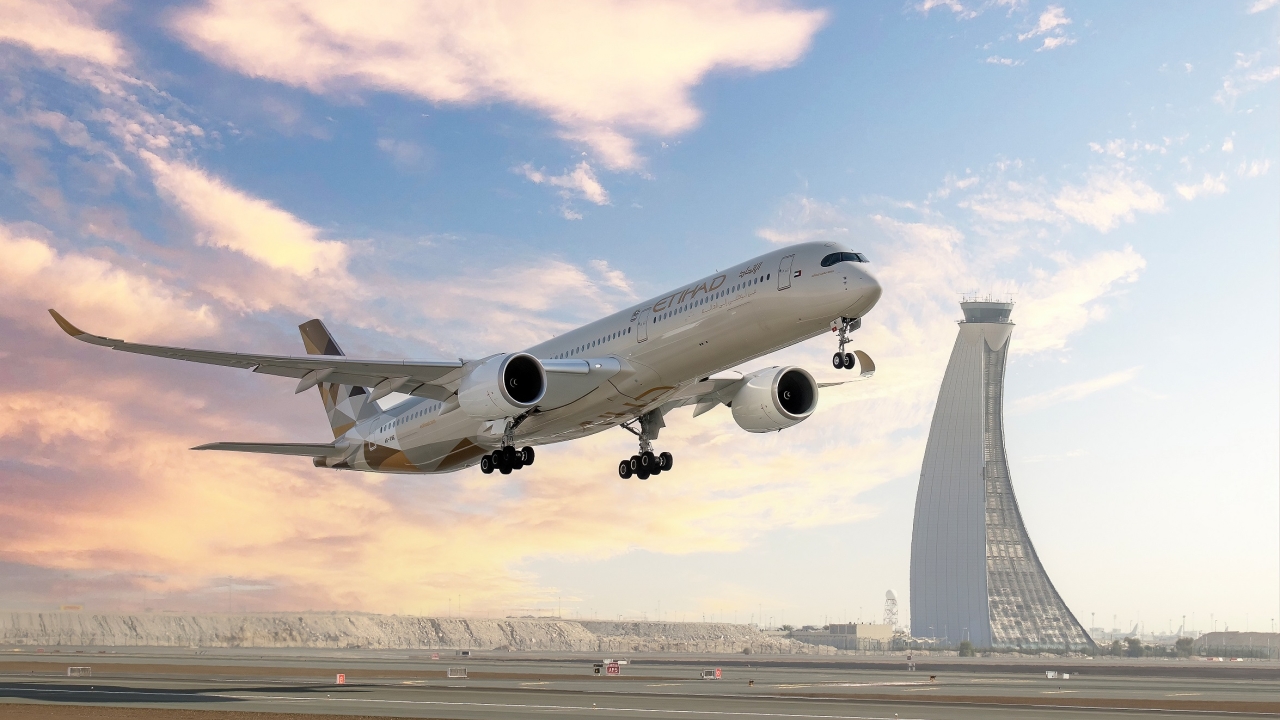Progressive Jaz...
Kuwaiti hybrid carrier, Jazeera Airways, foresees a list of potential new long-haul destinations in the coming years as it takes delivery of Airbus A320neos. Alan Dron found out more from CEO, Rohit Ramachandran.

London’s airports see plenty of daily arrivals from the Middle East, but until last October, none had taken the form of a single-aisle airliner operated by a low-cost carrier.
Kuwait’s Jazeera Airways was the airline involved, using the longer range of its new Airbus A320neo to create what it says is the world’s longest scheduled service for the A320’s new-generation model.
The service into London Gatwick is, nevertheless, close to the A320neo’s maximum range and Jazeera has to accept a 12-passenger payload penalty to reach the UK airport. However, it has succeeded in ‘monetising’ this handicap by blocking off the middle seats of rows and selling those on either side of them as premium economy, giving their occupants extra elbow room.
Other new destinations taking advantage of the neo’s range are to the east of the Gulf – Chittagong (Bangladesh), Kathmandu (Nepal) and Osh (Kyrgyzstan).
Closer to home, new destinations include Dammam and Abha in Saudi Arabia, plus Al Ain in the UAE. The latter is “a very good, empty airport and we have tremendous support from the Government of Abu Dhabi to operate in there”, said Ramachandran.
As Jazeera’s route network expands, it is increasing its fleet correspondingly. In 2018, it had seven A320s. By the end of 2019, that had risen to 13; 16 are expected by late 2020 and there could be 23 by 2022.
“It’s significant growth, but we don’t want to make the same mistake as some of our friends in the region, who placed large orders [for aircraft] and now don’t know what to do with them,” said Ramachandran. “We prefer to be half an aircraft short rather than have half of one extra.”
Neos are starting to replace the earlier A320s as the leases on the latter expire, with four neos scheduled to be in service as Arabian Aerospace was going to press. Given the steady increase in passenger numbers, something a little larger may be required. The company is in what the CEO describes as “early discussions” with Airbus over taking A321neos, but these will be for the medium term.
“If they do join our fleet, it won’t be before 2023 at the earliest. We’ve had offers from lessors for long-range (LR) models from 2020 onwards, but we believe we have to exploit routes closer to home before we can do justice to these long-range aircraft.”
Jazeera has a strong home market. “Kuwaitis have the highest propensity to travel among the Gulf Cooperation Council nations,” he noted and, combined with high salaries, this means that yields are relatively high compared to elsewhere in the region.
Jazeera has been adept at tapping into the digital realm to increase its sales. Kuwaitis, said Ramachandran, welcome technology, and “a shade less than 50%” of the company’s ticket sales are now online. By contrast, some major carriers in the region still sell only a single-digit percentage over the internet, as opposed to more traditional means, such as travel agents.
There remains, however, the problem of over-capacity. Ramachandran noted that there are no fewer than 11 daily flights into Kuwait from the UAE, while a full-service airline from the region operates six daily services into the emirate – one of them using an Airbus A380.
Is there enough business to justify this scale of servicing? “Certainly not. But if you have aircraft sitting on the ground, you need to fly them.”
Maximising the use of its aircraft assets is obviously essential to bring extra revenue, so Jazeera has outsourced the management of its belly hold capacity to World Cargo Solutions (WCS).
“Cargo is never going to be the first priority for a low-cost carrier; our overwhelming focus is on passengers. But every flight has 1.5 to 2 tonnes of payload available.” WCS now has responsibility for filling that underfloor space and pays Jazeera for the privilege, bringing in an additional revenue stream.
With London being a favourite leisure and shopping destination for Kuwaitis, and many of the emirate’s young people studying in the UK, the flights to Gatwick could soon be full below-deck, as well as above it.
Stay up to date
Subscribe to the free Times Aerospace newsletter and receive the latest content every week. We'll never share your email address.

